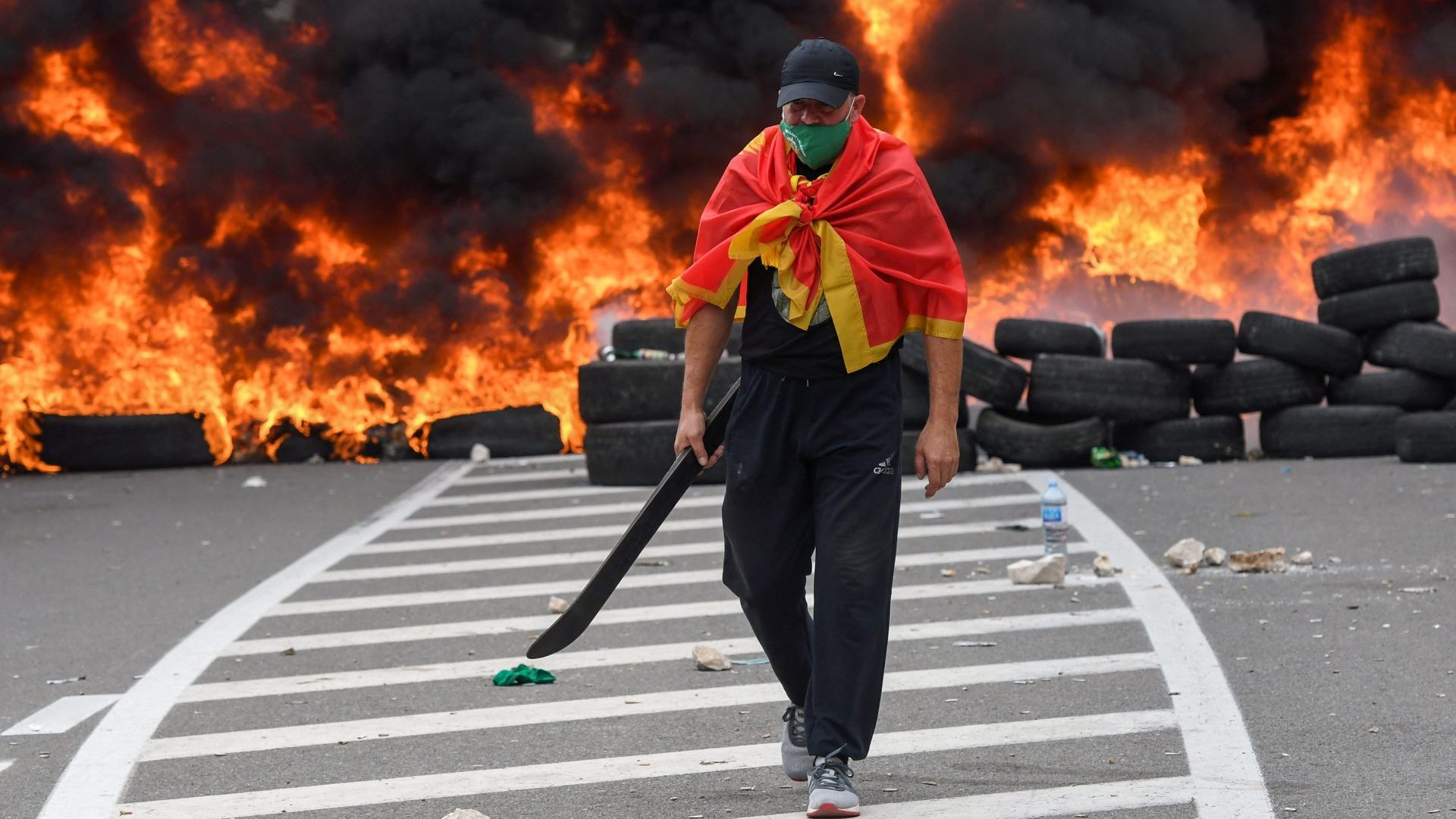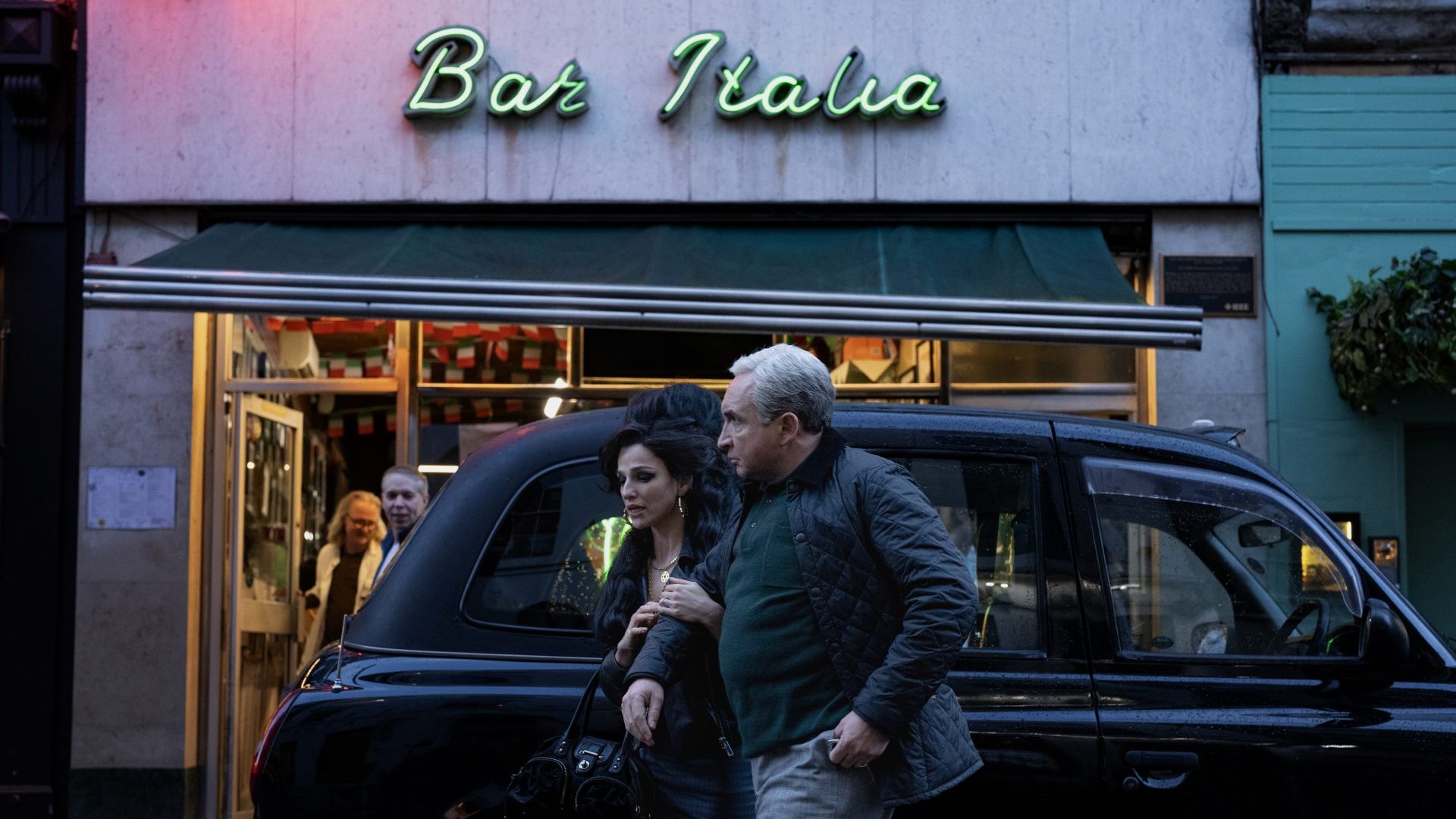Every author will encounter negative commentary of their work during their career. It used to be that a snarky review might be the worst thing a writer would see, or perhaps that dreaded phrase from an audience member at a literary event, “not so much a question, more an observation…”.
The rise of social media made it more difficult for writers to avoid the brickbats and slung mud of those unimpressed by their best efforts, but you can’t please everyone and those of us with the temerity to insert large slabs of words between a set of covers and push them into the public domain can’t really complain when the response is anything less than 100% positive. There is a little of the Noël Coward in all of us, when he said: “I can take any amount of criticism as long as it is unqualified praise”, but the world, alas, does not work like that.
Whether the Montenegrin-Bosnian author Andrej Nikolaidis is a Coward fan I can’t say, but recent events ahead of next week’s UK publication of his novel Anomaly have gone way beyond a bit of internet sniping into the realm of the deeply troubling.
Nikolaidis has never been afraid to voice an opinion. Born and raised in Sarajevo, he was 18 when the city was surrounded by Serb forces in 1992 and made it out with his family just as the crippling three-year siege that put the Bosnian city on front pages around the world began. The family settled in his father’s home town of Ulcinj in Montenegro, from where Nikolaidis observed the break-up of the former Yugoslavia, the subsequent federation of Serbia and Montenegro and in 2006 Montenegro’s declaration of full independence from their Serbian neighbours.
A long-term advocate for that independence as well as being a leading Balkan voice in defence of free speech and human rights, not to mention a fierce critic of Russia’s invasion of Ukraine, Nikolaidis is Montenegro’s most significant literary voice on the international stage. Anomaly is the fifth of his novels to be translated into English and he is the recipient of the European Union Prize for Literature (in 2011 for his novel Sin (The Son)). In February this year he was given the PEN Translates award for Anomaly.
In the Balkans at least, Nikolaidis is almost as well-known for his opinions as for his work. His public defence of victims of police torture in Montenegro in 2005 led to death threats – including one made live on the radio by a caller to a phone-in – and his persistent criticism of Republika Srpska, the autonomous Serb enclave in Bosnia-Herzegovina, has led to regular criticism from that quarter and Nikolaidis’s words being used in a 2012 election campaign by hardline Serb nationalist politicians. He didn’t seem to mind.
“They used me for their campaign,” he shrugged, “I’ll use them for mine.”
In 2004 he was sued for libel by Emir Kusturica after declaring the Serbian film director “one of the biggest media stars of the time when Milošević’s war propaganda propped people up who had something stupid but patriotic to say and created news for people who were insensitive to human suffering”, words that, after three court cases, cost the writer €5,000 in damages.
During the summer of 2022, Nikolaidis had two of Serbia’s most beloved authors, Ivo Andrić and Petar II Petrović Njegoš, in his sights. When he criticised the prioritising of “the school reading programmes and libraries full of Andrić’s fake garbage wisdom and Njegoš’s quasi-philosophical masturbation over the fate of the nation and religion”, the Montenegrin Ministry of Culture threatened to revoke the Prominent Cultural Creator of Montenegro status awarded to him in 2016.
Nikolaidis is not alone in feeling the wrath of an increasingly hardline Montenegrin government that has appeared far from stable since the Democratic Party of Socialists was voted out in 2020 after almost three decades in power. Last month charges were finally dropped against author and academic Boban Batrićević after he was accused last summer of inciting religious hatred in a piece giving examples of hate speech and the praising of war criminals by figures in the Serbian Orthodox Church in Montenegro.
In August 2022 the then prime minister Dritan Abazović attacked the Montenegrin branch of PEN, the international association of writers that campaigns for worldwide freedom of expression, as an “extremist” organisation before holding up in parliament a picture of the Montenegrin author and PEN member Milorad Popović, claiming he “serves the interests of crime”.
Yet it is Nikolaidis’s high profile and forthright opinions that make him the most visible target for pro-Serb and pro-Russian factions in and around the 600,000-strong Balkan nation.
Despite this, the events of March 3 this year in the Montenegrin coastal town of Herceg Novi came as a surprise even to Nikolaidis’s supporters and critics. That evening, a larger-than-life effigy clearly recognisable as the author by its spectacles and beard was subjected to a mock trial by a group dressed in white hoods and then set alight in front of a crowd chanting abusive slogans. Participating in the mock “trial” was a senior figure from Montenegro’s Ministry of the Interior.
While locals defended the burning as the annual carnival pillorying of a public figure, not dissimilar to the Lewes pope-burning parade in England, the rhetoric and symbolism of the event took this way beyond the boundaries of “it’s just a bit of fun”. A joint statement was issued by a group of NGOs, including the European Movement, calling on the Montenegrin president Jakov Milatović and prime minister Milojko Spajić to condemn the action.
“Today the local authorities of Herceg Novi are practising burning the effigy of a distinguished intellectual and writer, who is the winner of the biggest Montenegrin and European awards,” the statement read, “and tomorrow they will probably continue the practices of their ideological role models from Germany in the 1930s.”
PEN International emphasised how “writers, journalists, and other creatives in Montenegro operate in an increasingly toxic and suffocating atmosphere, which seriously impacts their expression. Pressure, intimidation, and threats aimed at stifling independent voices – including those of PEN members – must end once and for all”.
Nikolaidis’ response to the effigy-burners was characteristically stoic.
“You think you know what you did and why,” he wrote in response. “But… you allowed yourself not to be led by reason but by hatred – a wild flame, but it does not warm you. It was not me who burned in that hatred. It was you. Has the sky become clearer? Do you feel warm? Is life easier? Is everything all right now? You didn’t embarrass yourself in vain, did you?”
All of which rather overshadows the publication this month of Nikolaidis’s PEN award-winning Anomaly in Will Firth’s English translation. While there is no such thing as bad publicity, Anomaly deserves to stand on its own as a startlingly imaginative piece of work separate from the machinations of Montenegrin politics and the issues of wider Western Balkans.
Perhaps unsurprisingly, given the author’s personal history, Anomaly is about the end of the world. It opens on New Year’s Eve in 2021 in the form of a screenplay in which a government minister oversees a political murder then goes home to be a doting father to his children.
“It is pleasant and comforting to see a man in such complete peace with his own misdeeds,” writes Nikolaidis, tongue so far in his cheek a major expedition would be required to extract it, “it instils hope that we’ll be able to forgive ourselves anything.”
The writers are working on the script outside a seafront cafe when they notice a series of sunken ships bursting to the surface of the bay, encrusted with a century of barnacles and rust, their crews wandering the decks looking bewildered. If that wasn’t startling enough, people begin falling from the sky and smashing into the ground.
The book then shifts to different locations and characters whose stories end in similar time-bending catastrophes. Two ultra-Christian friends embark on grisly and macabre ways of freeing themselves from sin only to be killed when the 1944 Allied bombing raid on Podgorica suddenly reoccurs. There are falling whales, cruise ships materialising in the centre of cities; a chaotic rendering of the end of humanity thanks to history apparently repeating itself all at once.
The novel concludes in a cabin in the Swiss Alps, a mother and daughter seeking an old musical manuscript that might somehow explain the apocalyptic events. Or has it caused them?
“Art doesn’t exist so that we might intervene in the world,” Nikolaidis writes, “but so that we might find a tranquillity not to be had in life or death, in time or space.”
A constant and tangible anger thrums beneath the dark comedy of Anomaly.
“The human race owes its history as well as its future to the fact we’ve always been able to turn our backsides to the graves of those we maltreated and then seek absolution,” Nikolaidis writes, and this willingness to ignore the lessons of history sits firmly in his crosshairs. Anomaly is his most eloquent condemnation yet of our refusal to confront the past in order to improve the future, something still desperately required in the Balkans.
When a drone flying the flag of Greater Albania interrupted a Euro 2016 qualifier in Belgrade between Serbia and Albania, almost causing an international incident, Nikolaidis wrote in the Guardian that, “if anyone thinks that the Balkans is tired of nationalist madness, destruction, and the confirmation of so-called Balkan stereotypes… well, we are not. It seems that the Balkans never fail to prove the theory that the one willing to bet on the worst in men will always win.”
The image of his burning effigy does not suggest any progress has been made since, but in the meantime Anomaly stands as an outstanding testament to a frustrating, tiresome and deadly truth.
Anomaly by Andrej Nikolaidis, translated by Will Firth, is published by Peirene Press on 16 April, price £12.99




